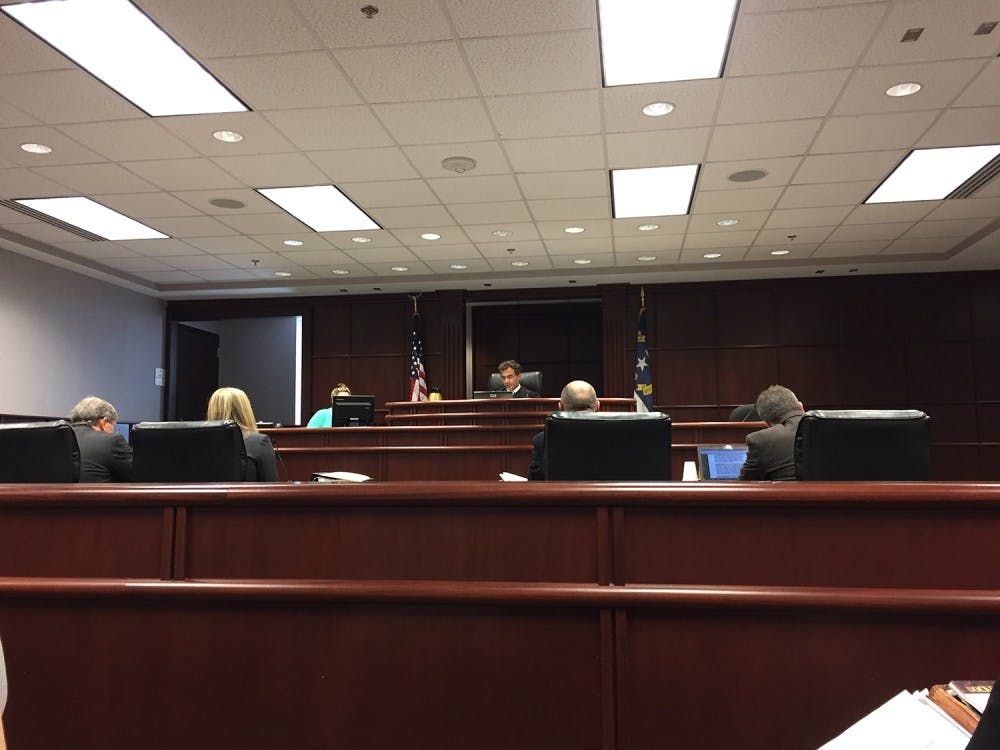The Daily Tar Heel's lawsuit against UNC remains unresolved after a hearing in Wake County Thursday.
The DTH sued UNC for public records on sexual assault cases in the fall along with three other North Carolina media organizations — WRAL, The Charlotte Observer and The Durham Herald-Sun — after the University denied a formal request for the records.
The hearing in Judge Allen Baddour’s courtroom was the first step in a potentially long process.
Attorney Hugh Stevens, who is representing The Daily Tar Heel, argued that the general public may be informed of the final disciplinary proceedings of any crime, violence or sexual offense if it was concluded that the offender was found responsible. The DTH wants public access to the name, nature of offense and any sanction by the University in sexual assault cases where the offender was found responsible.
Stevens argued that North Carolina public records law trumps the University’s discretion. He said there is compelling public interest in knowing the identities of people accused of sexual assault.
"Our position is that this is an appropriate motion to show cause because the complaint in this case…requests that the defendants produce records that undeniably — and in fact they acknowledge — they have in their possession," Stevens said.
Stephanie Brennan, special deputy attorney general at the North Carolina Department of Justice, represented UNC at the hearing.
Brennan argued that federal law gives UNC discretion and the University does not have to disclose this information to the public. She broke down the laws into three main sections, discussing how the University is bound by Title IX, the Clery Act and the Family Educational Rights and Privacy Act. Brennan said the released names could affect the University’s process in addressing these situations.
“A lot of that information the affidavit explains in detail, about how that revelation will happen," Brennan said. "And in addition, that’s something that courts have recognized in terms of the likelihood that — in the age of Google and social media — that people can put two and two together."



